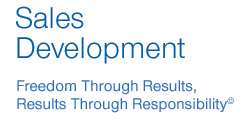Will You Reinvent Yourself in 2021?
November 13th, 2020For many, 2020 has been a year filled with confusion, pain and uncertainty. As with most crises, the pandemic has challenged many long-held paradigms, altered sacred-cow perspectives, forced change, and inspired spectacular innovations. It has even spawned a number of heroes. While some suffered mightily, others made fortunes because of the crisis.
Most people, including many business owners, spend a great deal of time stuck in a rut of limiting patterns. They sit in waiting, cemented in limbo until they are forced by a life-changing event to reluctantly leave their comfort zone. Some people become so addicted to their Zone that they actually require a crisis to force them out of their comfortable, performance-diminishing behaviors, mindset, and decision-making. Committed zone-dwellers require a high degree of discomfort in order to change and propel themselves out of mediocrity.
The natural human tendency to cling to the status quo costs some entrepreneurs millions of dollars of profit, considerable frustration, and thousands of hours of stress.
A breakthrough resulting from crisis (aka: an inflection point) can happen quite rapidly. Some common examples of events that lead to inflection points include sudden job termination, divorce, or unfortunate health news. While events like these can be devastating emotionally, they can also serve as a proactivity trigger — a wake-up call to transform performance by replacing destructive habits. An inflection point is a traumatic experience or moment that forces an individual to re-evaluate all their beliefs and behaviors, altering the direction of their life. Unfortunately, some never spot opportunities that can arise from chaos, or take full advantage of dramatic change and uncertainty. They never experience an inflection point.
Conversely, history is also littered with stories of many heroes who have used the toughest times to ascend to greatness, taking advantage of turbulent events to springboard themselves and the teams they led to new heights. By substituting empowering behaviors for limiting ones, they used pain as fuel to transform their performance and produce amazing results.
Why is it that some people surrender their future to circumstances and “wait for their ship to come in…”, while others take control of their futures and consistently evolve, transform, over-achieve, and win?
Outstanding result-producers are nearly impervious to external events. During periods of intense turbulence or sustained stability, the most consistent performers commit to continuous improvement and choose to invent a better future, while many others choose to live into their default future. Your default future is the one you have already written (without even realizing it). It is the future that will likely occur if nothing unexpected comes along to jolt you out of your Comfort Zone—a future that will probably place you squarely in a deep pool of mediocrity. Is this the future you are seeking to create for yourself?
The highest achievers do not require an inflection point. These special individuals refuse to surrender themselves or their destiny to a default future. Instead, they choose to proactively change in order to tip the odds in their favor. Superior achievers will certainly seek new opportunities that might emerge from a crisis but will never wait for a disaster to pry them out of their Comfort Zone. Hyper-performers actually train themselves to be most comfortable OUTSIDE of their Comfort Zone, adopting a mindset and using a process that forces them to consistently re-evaluate their habits and behaviors. Just like brushing their teeth or mowing the lawn, achievers simply make the process part of their routine. This performance-inducing process becomes part of their practice, one that pays huge dividends. This practice is the gift that keeps on giving.
The Performance Practice includes 4 components — Community, Coaching, Curriculum, and Collaboration.
No special skills are required to adopt these components. Like most empowering practices, anyone can choose to adopt them, but only a small percentage actually do. With just a bit of discipline, anyone can make the Performance Practice part of their habitual routine. An effective performance practice is not a function of skill, it is a function of will.
While none of us know what 2021 will bring, we can be certain there will be some surprises.
We may even experience behavior-changing catastrophes, but please don’t wait for an inflection point.
As you reflect on 2020 and begin your planning to achieve new heights in the new year, take close inventory of your behavioral routine. If you find you are missing one (or more) of the components of the Performance Practice, choose a better routine so you can invent a much better future. Start today. You will be amazed at the result.
Copyright © Joe Zente 2020. All Rights Reserved.









